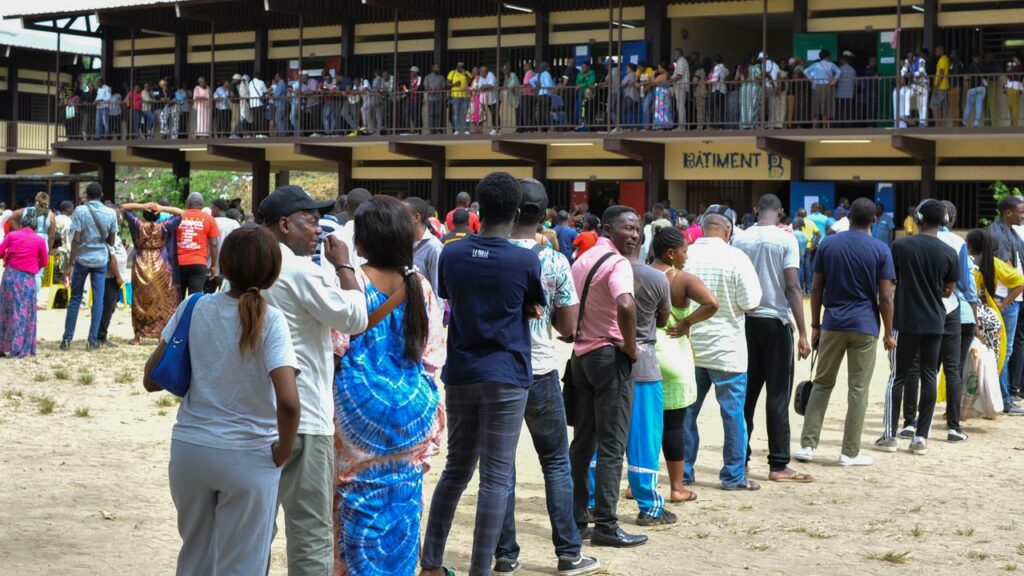Gabon’s detained president appeals to world for help
|

Military officers in oil-producing Gabon say they have seized power, placing President Ali Bongo under house arrest and naming a new leader after the country’s election body announced Bongo had won a third term.
Saying they represented the armed forces, the officers declared on television that the election results were cancelled, borders closed and state institutions dissolved, after a tense vote that was set to extend the Bongo family’s more than half century in power.
Within hours, generals met to discuss who would lead the transition and agreed by unanimous vote to appoint General Brice Oligui Nguema, former head of the presidential guard, according to another televised address.
Meanwhile, from detention in his residence, Bongo appealed in a video statement to foreign allies, imploring them to speak out on his and his family’s behalf.
The video was confirmed as authentic by BTP Advisors, a PR firm that has worked closely with Bongo on his election campaign.
“The people here have arrested me and my family. My son is somewhere, my wife is in another place… Right now, I’m at the residence and nothing is happening. I don’t know what’s going on,” Bongo said in English, addressing the camera from a chair in what looked like a richly furnished state room.
“I (want) to send a message to all the friends we have all over the world to tell them to make noise.”
He was smartly dressed and showed no outward signs of mistreatment.
Bongo’s plight was a dramatic reversal from the early hours of Wednesday when the electoral commission declared him the winner of Saturday’s disputed vote.
Hundreds of people celebrated the military’s intervention in the streets of the Gabonese capital Libreville while the United Nations, African Union and France, Gabon’s former colonial ruler which has troops stationed there, condemned the coup.
The military takeover in Gabon is the eighth in west and central Africa since 2020, and the second – after Niger – in as many months.
Military officers have also seized power in Mali, Guinea, Burkina Faso and Chad, erasing democratic gains since the 1990s and raising fear among foreign powers that have strategic interests in the region.
“I am marching today because I am joyful. After almost 60 years, the Bongos are out of power,” said Jules Lebigui, a jobless 27-year-old who joined crowds in Libreville.
Bongo took over in 2009 on the death of his father Omar, who had ruled since 1967.
Opponents say the family has done little to share the state’s oil and mining wealth with its 2.3 million people.
Violent unrest broke out after Bongo’s contested 2016 election victory, and there was a foiled coup attempt in 2019.
The Gabon officers, calling themselves The Committee of Transition and the Restoration of Institutions, said the country faced “a severe institutional, political, economic, and social crisis,” and that the August 26 vote was not credible.
They also said they had arrested the president’s son, Noureddin Bongo Valentin, and others for corruption and treason.
Bongo, 64, was last seen in public casting his vote on Saturday.
Before the vote, he had looked healthier than his more frail television appearances after his 2018 stroke.
Unlike Niger and other Sahel countries, Gabon, which lies further south on the Atlantic coast, has not had to battle destabilising Islamist insurgencies.
But the coup is a further sign of democratic backsliding in the volatile region.
A “contagion of autocracy” is spreading across Africa, said Nigerian President Bola Tinubu, the current chair of west African bloc ECOWAS.
He said he was working closely with other African leaders on how to respond in Gabon.
Concerns about the weekend election’s transparency were raised by a lack of international observers, the suspension of some foreign broadcasts and a decision to cut internet service and impose a night-time curfew after the vote.
Reuters